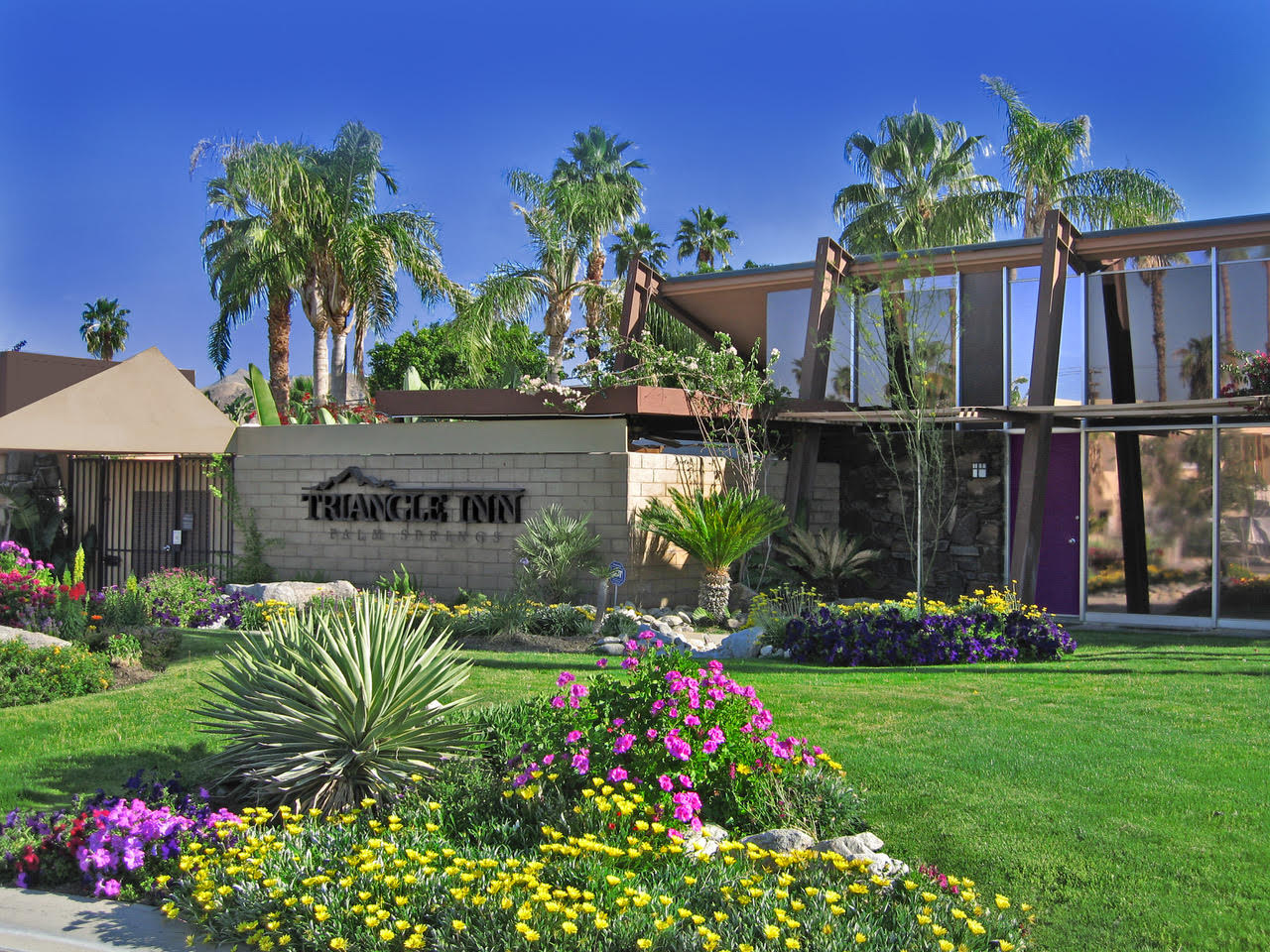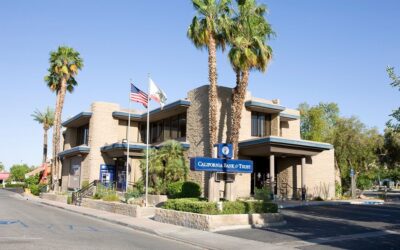For more than a decade, the Greater Palm Springs area has enjoyed a level of success as a tourist destination not seen before. Visitors from Los Angeles and around the globe have flocked to the area on an increasingly year-round schedule as tourism businesses continued to open and prosper.
To say that Covid-19 had a decimating effect on this industry is an understatement. Restaurants, bars, attractions and fitness facilities depending on visitors were devastated with shutdowns, consumers unwilling to risk safety in close crowds or fly. Events bringing visitors were postponed, conventions disappeared. The international market, which shored up summer visitation, evaporated overnight.
“It was devastating,” says Kathy Friedle, co-owner of The Monkey Tree Hotel in Palm Springs with her husband Gary. “Everything just evaporated.” Michael Green, co-owner of the Triangle Inn added “With a record-breaking March forecasted, we lost April, May and June, which had become prime months for business.”
Many hotels obtained short-term assistance from programs such as the Paycheck Protection Program and the Economic Injury Disaster Loan. But banks stopped talking to hotels regarding reprieves and refinancing. Kathy pointed out that, “A saving grace was our SBA loan, which gave us a temporary reprieve. Our friends with traditional mortgages didn’t have that.”
A light emerged as small hotels found themselves in a unique position. Overnight, safety had become the overriding issue. Owners and managers recognized they had a path to survival that other businesses couldn’t overcome. The push to leave larger, more condensed cities to sunny, spacious destinations proved appealing. But it wasn’t without much creative thinking, and many have changed their plans, upped their game, and fundamentally re-wired how they do business. Almost all have adjusted businesses models, operations, marketing and technology.
Organizations designed to support small hotels stepped in to help. As Kathy and Gary recounted, “Our web company (Acorn) called together their small hotels across the country and helped us map out a strategy to re-open, even though we were only a week into it. We discussed loans, funding, public space, staffing. It was a think tank of people brainstorming how to change the business and reduce expenses. Every communal aspect had to go away, because guests would only come back if they felt safe. We implemented new operational and communication procedures.”
Michael outlined how core attributes specific to small hotels could be key. “We aren’t faced with crowd size, and we have open space, without corridors and elevators. We can take care of one party at a time, and much can be done outdoors. Palm Springs is a sun destination; we’re not closing things off when it’s cold. In addition, the entire destination is viewed as safer than other destinations.”
“We received guidelines for re-opening from the state, but they didn’t speak to small hotels,” shared Kent Taylor, General Manager of the Santiago Resort.
Along with the Palm Springs Preferred Small Hotels group (a Tourism BID made up of almost 70 hotels with under 50 rooms within the city), the hotels developed an outline to be shared with colleagues. “It helped the hotels understand what they needed to focus on,” Kent noted.
One of the small hotels that operates a restaurant is Los Arboles Hotel with El Mirasol Restaurants. The north location sits adjacent to the hotel, with a bougainvillea-covered walkway connecting the two. This has given owner Felipe Castaneda, his wife, and daughter Karina both opportunities and challenges. Both restaurants remained open while the hotel closed in March. “We had over 30 people working between the two restaurants,” said Felipe. “We knew we had to feed these kids.” The PPP program helped keep staff working, although, as Felipe noted, “The bills were still due.” “It was a question of how long we could hang on,” added Karina.
Some hotels, like Casa Cody, decided to use the time to close and completely renovate their hotel. Others used the closure for projects and upgrades. “We painted, cleaned and overhauled,” shared Kathy. They also implemented a contactless check-in with a concierge app. “This was going to be a change for us, as we loved the welcome and tour,” she added. Robert Hunt, general manager of the Alcazar Hotel added that their hotel kept a portion of staff working by temporarily combining roles while still observing strict safety protocol.
In Desert Hot Springs, with another collection of small boutique hotels, the same changes were underway. Bruce Abney, co-owner of the El Morocco Inn, commented that as most of their guests were couples, he highlighted activities such as bocce ball, croquet, giant chess, and hammocks to offer options for R&R while distancing. “Spa business has fared the worst, it’s collapsed,” he explained, noting that their spa services usually generate about half of the hotel’s revenue. But he noted that the guest rooms have helped to cover expenses until spa business begins to recover.
The Triangle Inn stocked rooms with daily snacks and ice. “Guests order out for delivery and bring food in to make their own meals,” observed Michael, noting they can dine on their private patio, near the pool or in their guest room. The Santiago Resort redesigned their breakfast room to begin a pick-up window for breakfast. “I simplified the menu, and guests enjoy taking their breakfast to their patio,” shared Kent. All, however, noted that they give restaurant recommendations for outdoor dining to support their colleagues whom many observed are having the most difficult time of all.
For the Castanedas, the restaurant helped keep them afloat. They began with takeout and delivery, and when the word came that alcohol to-go was allowed, “It doubled, then tripled the sales as we could send margaritas with food,” said Karina. They implemented a reservation system to space tables and times, which had always been no-reservations required. Sanitizing stations, signage and well-spaced pool chairs were implemented as standard operating procedures. Kent designed their signage to be entertaining and fun. “It doesn’t feel like finger-wagging,” he commented.
Hoteliers communicated to guests what they could expect. The Monkey Tree focused on retaining contact by phone or text before arrival. Staff would meet the guests at a distance to walk them through the property. Keys in plastic bags and a color-coded system for laundry exchange were implemented, communicating safe and clean practices. Buffet breakfasts changed to a drop-off continental breakfast, still freshly made. Robert shared that sanitized keys and remotes within new sleeves placed into attractive containers were safe and appealing. Remarked Bruce, “We’ve gone from high touch to no touch.”
Kent’s staff training included adhering to a hospital standard of cleaning, such as cleaning back to front and using more effective products. The Monkey Tree and the Alcazar Hotel added Covid-19 sections to their website, including a pop-up directing to that page when searching for the property. “We want people know exactly what we’re doing,” said Kathy.
Kimberli Munkres, who heads up marketing and communication for the PSPSH, explained the campaign they developed as a result. “Staying Small is Staying Safe” showed open landscaped spaces, private patios, built-in kitchens and more to highlight attributes. Individual hotels including The Triangle Inn, The Monkey Tree and Alcazar used social media and newsletters to reach out to their past guests. Kathy explained that while closed, the hotel featured a past guest spotlight. “We’re thankful to our guests and wanted to make it personal.” The PSPSH website posted articles focusing on safe outdoor activities such as self-guided tours, outdoor dining and early morning bike rides. “We’ll continue to add information as activities become available,” Kimberli noted.
Lastly came the decision as to how many rooms to re-open, taking into account guest flow, double occupancy and space on pool decks. The signal came from the county on June 15.
“We opened 75% of our rooms, the right amount of space for guests to feel comfortable,” commented Kent. “That has paid off as regular guests are coming back every 4-6 weeks.” The Monkey Tree welcomed not only the drive market, but Portland, Seattle and the Bay Area. Guests who weren’t working or working from home booked during mid-week. The Castaneda family reorganized – communal touches were replaced with complimentary individual plates with items from the restaurant menu. Requests from prior guests helped to them to decide upon a September opening date, and they began personal phone calls to communicate new policies beforehand. A system for return guests was developed to bypass the front office.
For the smallest hotels, buyouts could continue, as they did not constitute a gathering, but would allow families and small groups to work and play while maintaining space and being outdoors. But many of the properties, including Alcazar and Los Arboles, had to cancel the business. “Clients required an on-premise dinner, which was out of the question,” says Karina. The Alcazar worked to replace their popular wedding business with individual leisure travelers and those working out of the hotel. Robert observed, “One guest worked out of the business center and extended their stay four times, while another family’s child completed video classes and took breaks in the pool.”
Always popular, room reservations made within a week are now the large majority, with one-two days the norm. The Santiago Resort keeps a waiting list of reservations, and guests are contacted should a room become available. Cancellations and re-bookings due to state alerts, such as the California curfew, have required changes in policy such as cancellation fees.
Implementing new policies while still creating a positive experience can be tough. “We have to be responsible while at the same time creating a hospitable experience. Our usual warm embrace becomes harder to do,” explains Karina. “But keeping it all going has given us a sense of pride.” Kathy added that knowing the staff has created a safe space has been a business driver. “No one complains that the communal sangria had to go away,” she quipped.
The work seems to have paid off. Kimberli noted that according to the City of Palm Springs TBID report, March through June 2020 saw a 78.8% drop in small hotel revenue to the prior year, then July and August registered a 14.9% increase over 2019. The Monkey Tree has increased their ADR (Average Daily Rate), helping to increase revenue. “We are so grateful that Palm Springs is the place that people want to come, with the name recognition and driving distance,” explained Kathy. The El Morocco Inn has also experienced increased ADR, and Bruce compared the Palm Springs area favorably to Las Vegas, who experienced challenges with lower rates this past summer. With fall season, hoteliers are slowly opening more rooms. “Summer at the pool was the biggest reason to restrict rooms,” Robert reflected. “With cooler weather, guests are out hiking and biking .”
These efforts may be tested as the season continues. “The holiday stays were one or two nights instead of three or four,” commented Michael. “The winter brings Canadians and East Coast visitors, and we’ve enjoyed seven to ten night stays from this market.” Kent added that few expect Canadians and East Coast visitors to be flying this season. It was noted that Canadians, whose health insurance is recognized in the U.S., understand that Covid-19 is not covered and may further impact travel, even if driving.
Although hope is running high that vaccines will change the dynamics of the market, taking advantage of the core appeal of small hotels is what these creative owners and operators hope will carry them through 2021. Said Bruce, “The allure is there – we’re separate from large groups, we’re healing, exotic, and with hot springs to offer individuals and couples.” Michael commented that “Guests are grateful to be somewhere new and safe. Palm Springs’ open environment, warm winter weather and outdoor space will continue to appeal to guests for the foreseeable future.”




